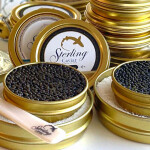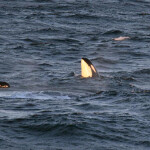The Brexit transition arrangements recently agreed by the United Kingdom and the European Union that are set to last until the end of 2020 will provide valuable assurances to seafood companies and the opportunity for them to fully prepare for the future, believes U.K. Fisheries Minister George Eustice.
The minister told delegates at the Shellfish Association of Great Britain (SAGB) Annual Conference in London that while many U.K. fishermen have voiced their frustration at the amount of time it is taking to leave the E.U. and thereby regain sovereignty over the country’s waters, many businesses will have much greater clarity through the transitional period and ensuring their access to markets continues on the current terms, albeit for a limited time period.
“I accept that the finfish catching sector is understandably disappointed with the E.U. transition agreement and in particular the fisheries policy within that. However, there are a lot of businesses, especially those that export to the European Union that have told us they need more time and greater certainty with what happens immediately after March 2019.”
Separately, the U.K. government is working on the future conditions of trade with the E.U. as well as the terms of the withdrawal agreement. There are also important discussions currently taking place about the English-Irish border issue, he said.
“We are expecting to have an agreed withdrawal agreement that will then be put to parliament later this summer, as well as the terms of our future economic partnership. They key aspect within the future economic partnership will be the description of a free trade agreement (FTA) that we will implement after December 2020," Eustice said. "By the end of this year we will have finalized the terms of our withdrawal from the E.U. and this will give a clearer idea of what future [we can expect].”
Eustice stressed that while the negotiations were “difficult and complex” with both sides being very clear and also some distance apart in terms of what they want, what will probably happen is a “coming together” next year where all the main issues are resolved “at the eleventh hour.”
Such down to the wire resolutions are “nothing unusual,” he said.
“We are doing all that we can to get that discussion. It’s in the E.U.’s interest to have an FTA with the U.K., it has a huge trade surplus with the U.K. market and so it makes no sense for them to cut off their nose to spite their face, but we have important negotiations ahead…to get this FTA.”
With 60 percent of U.K. shellfish exports going to EU markets, the minister also assured the sector that its interests and those of all fisheries would be respected and that they wouldn’t be “trade-off victims” or “sacrificed” for other, more lucrative deals in the negotiation process.
“Fishing communities are well represented in parliament, they are very vocal and are heavily supported. We are confident that in the end, we will be looking after the interests of all sectors of our fishing communities.”
The conference was also informed that the Department for Environment, Food, and Rural Affairs (DEFRA) is looking closely at a number of other issues, including what catch certificates, if any, will be necessary for exports to the E.U. under the future economic partnership and what framework needs to be in place to enable that flow, as well as what will replace the European Maritime and Fisheries Fund (EMFF) grants that have become “particularly important” for nurturing the United Kingdom’s growing aquaculture sector.
“Aquaculture is a key part of our plans. My view is that if dealt with correctly, it will get greater certainty with regard to incoming marine plans regarding such things as licensing. I know we are not there yet, but that is what the marine plans should be doing – we are hoping to give you greater clarity, certainty and to speed up the process," Eustice said.
The future management of U.K. fisheries is also a high priority for the government, and a new fisheries bill is expected next year, said Eustice.
“Put simply, when we leave the E.U., we will become an independent coastal state under international law and we will take responsibility for our own fisheries, managing and patrolling access out to 200 nautical miles," he said.
The current December Council fishing negotiations with the E.U. will also be replaced, he said.






